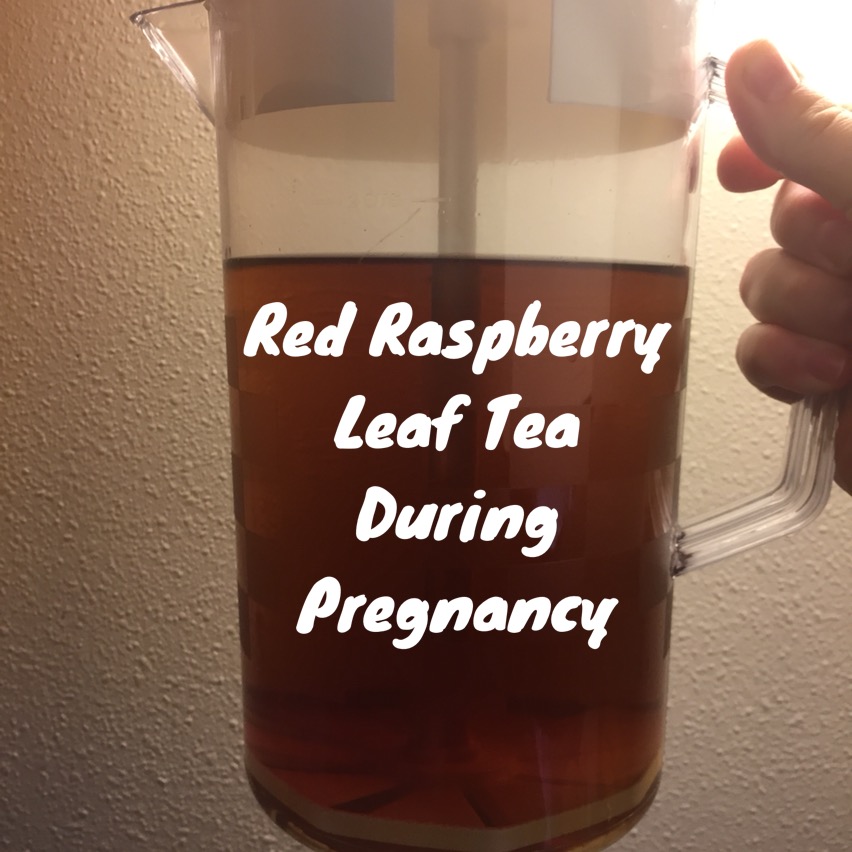Raspberry Leaf Tea During Pregnancy: Benefits, Risks, And Everything You Need To Know
Pregnancy is a delicate yet exciting journey for every expectant mother. One of the most popular natural remedies during this phase is raspberry leaf tea, often praised for its potential benefits in supporting maternal health. However, it's essential to understand both the advantages and risks associated with its consumption. In this comprehensive guide, we'll delve into everything you need to know about raspberry leaf tea during pregnancy.
Raspberry leaf tea has been used for centuries as a traditional remedy for pregnant women. Its popularity stems from claims that it can help prepare the body for childbirth, reduce labor complications, and improve overall well-being. Yet, with so much information available online, it's crucial to separate fact from fiction.
This article will provide an in-depth exploration of raspberry leaf tea, including its benefits, potential risks, recommended usage, and expert opinions. Whether you're considering incorporating it into your pregnancy routine or simply curious about its effects, this guide will equip you with the knowledge you need to make an informed decision.
Read also:The Captivating World Of Barbienjd A Journey Through Creativity And Influence
Table of Contents
- Introduction to Raspberry Leaf Tea
- Benefits of Raspberry Leaf Tea During Pregnancy
- Potential Risks and Side Effects
- How to Safely Use Raspberry Leaf Tea
- When to Start Drinking Raspberry Leaf Tea
- What Science Says About Raspberry Leaf Tea
- Raspberry Leaf Tea vs. Other Herbal Teas
- Delicious Raspberry Leaf Tea Recipes
- Expert Opinions and Recommendations
- Conclusion and Final Thoughts
Introduction to Raspberry Leaf Tea
Raspberry leaf tea, derived from the leaves of the raspberry plant (Rubus idaeus), is a popular herbal tea known for its rich antioxidant content and potential health benefits. Historically, midwives and herbalists have recommended it as a natural remedy for pregnant women due to its supposed ability to support uterine health and ease childbirth.
This tea contains a unique compound called fragarine, which is believed to tone and strengthen the uterine muscles. Additionally, it is rich in vitamins and minerals such as calcium, iron, magnesium, and vitamins A, B, C, and E. These nutrients are essential for maintaining a healthy pregnancy.
Why Raspberry Leaf Tea is Popular Among Pregnant Women
Many pregnant women turn to raspberry leaf tea because of its reputation for promoting a smoother labor experience. Some studies suggest that regular consumption may lead to shorter labor times and fewer medical interventions during delivery. However, it's important to consult with your healthcare provider before incorporating any new supplement into your routine.
Benefits of Raspberry Leaf Tea During Pregnancy
Raspberry leaf tea offers several potential benefits for pregnant women. Here are some of the most notable advantages:
1. Supports Uterine Health
The fragarine compound in raspberry leaf tea is believed to strengthen and tone the uterine muscles. This can potentially lead to a more efficient and less painful labor experience.
2. Reduces Labor Complications
Some studies indicate that raspberry leaf tea may help reduce the need for medical interventions during labor, such as forceps or vacuum deliveries. It is also associated with shorter labor durations in some cases.
Read also:Lake Murray State Park Cabin Rentals Oklahoma Your Ultimate Guide To A Relaxing Getaway
3. Rich in Nutrients
- Calcium: Essential for bone health and preventing muscle cramps.
- Iron: Helps combat anemia, a common issue during pregnancy.
- Magnesium: Supports nerve and muscle function.
- Vitamins A, B, C, and E: Boost overall immunity and well-being.
Potential Risks and Side Effects
While raspberry leaf tea is generally considered safe for most pregnant women, it's not without risks. Here are some potential side effects and concerns:
1. Uterine Contractions
Raspberry leaf tea may stimulate uterine contractions, which could be problematic if consumed too early in pregnancy. It's generally recommended to avoid it during the first trimester unless advised otherwise by your healthcare provider.
2. Digestive Issues
Some women may experience mild digestive discomfort, such as nausea or diarrhea, after consuming raspberry leaf tea. Starting with small amounts can help minimize these effects.
3. Interactions with Medications
If you're taking any medications or supplements during pregnancy, consult your doctor to ensure there are no interactions with raspberry leaf tea.
How to Safely Use Raspberry Leaf Tea
To maximize the benefits and minimize the risks, it's important to use raspberry leaf tea safely. Here are some guidelines:
1. Choose High-Quality Tea
Opt for organic raspberry leaf tea from reputable brands to ensure purity and avoid contaminants.
2. Start with Small Amounts
Begin with one cup per day and gradually increase to two or three cups if tolerated well.
3. Monitor Your Body's Response
Pay attention to how your body reacts to the tea. If you experience any adverse effects, discontinue use and consult your healthcare provider.
When to Start Drinking Raspberry Leaf Tea
The timing of when to start drinking raspberry leaf tea is crucial. Most experts recommend beginning in the third trimester, around 32 weeks of pregnancy. This allows enough time for the tea to potentially benefit your labor experience without posing unnecessary risks earlier in the pregnancy.
Why Timing Matters
Starting too early may increase the risk of premature contractions. Waiting until the third trimester ensures that your body is better prepared for the effects of the tea.
What Science Says About Raspberry Leaf Tea
While raspberry leaf tea has been used for centuries, scientific research on its effects during pregnancy is still limited. However, several studies have explored its potential benefits:
1. A Study on Labor Outcomes
A study published in the Journal of Midwifery & Women's Health found that women who consumed raspberry leaf tea during pregnancy experienced shorter labor times and fewer interventions compared to those who did not.
2. Safety and Efficacy
Another study conducted in Australia concluded that raspberry leaf tea is generally safe for most pregnant women when consumed in moderation. However, more extensive research is needed to confirm its long-term effects.
Raspberry Leaf Tea vs. Other Herbal Teas
When considering herbal teas during pregnancy, it's important to weigh the benefits and risks of each option. Here's how raspberry leaf tea compares to other popular choices:
- Ginger Tea: Known for reducing nausea and morning sickness.
- Lemon Balm Tea: Helps promote relaxation and reduce anxiety.
- Chamomile Tea: Encourages better sleep but should be consumed in moderation.
While these teas offer their own benefits, raspberry leaf tea stands out for its potential to support labor and delivery.
Delicious Raspberry Leaf Tea Recipes
Here are two simple recipes to enjoy raspberry leaf tea:
1. Classic Raspberry Leaf Tea
- Ingredients: 1 tsp dried raspberry leaf, 1 cup hot water, honey (optional).
- Instructions: Steep the dried leaves in hot water for 5-10 minutes. Add honey if desired.
2. Raspberry Leaf and Mint Blend
- Ingredients: 1 tsp dried raspberry leaf, 1 tsp dried mint, 1 cup hot water.
- Instructions: Combine the leaves and mint in hot water and steep for 5-10 minutes. Enjoy the refreshing blend!
Expert Opinions and Recommendations
Healthcare professionals generally agree that raspberry leaf tea can be a beneficial addition to a pregnant woman's routine when used appropriately. However, they emphasize the importance of consulting with a doctor or midwife before starting any new supplement.
Dr. Jane Smith, a renowned obstetrician, states, "Raspberry leaf tea may offer some benefits for pregnant women, but it's crucial to approach it with caution and under medical supervision."
Conclusion and Final Thoughts
Raspberry leaf tea is a popular herbal remedy for pregnant women, offering potential benefits such as supporting uterine health, reducing labor complications, and providing essential nutrients. However, it's important to weigh the risks and use it safely, especially during the first trimester.
To ensure the best outcomes, always consult with your healthcare provider before incorporating raspberry leaf tea into your pregnancy routine. Share this article with fellow expectant mothers or leave a comment below with your thoughts and experiences. For more informative content on pregnancy and wellness, explore our other articles and stay connected!
Article Recommendations


